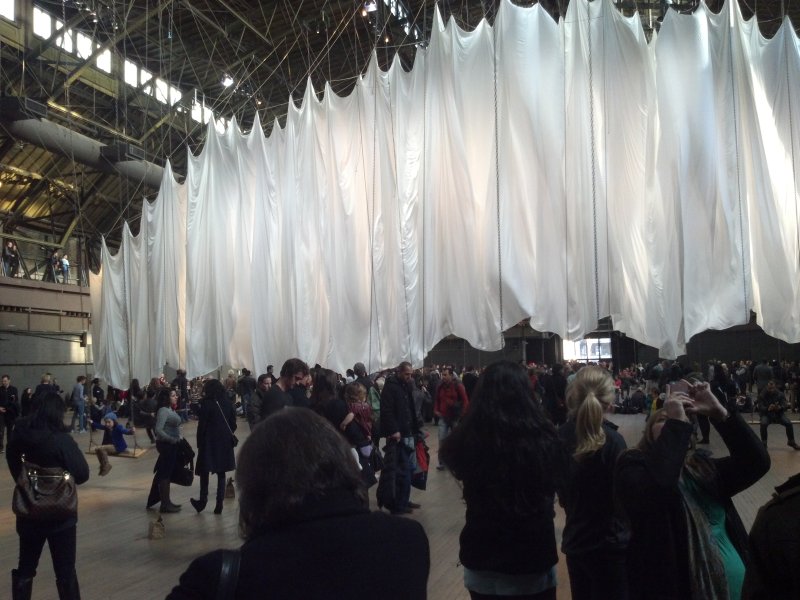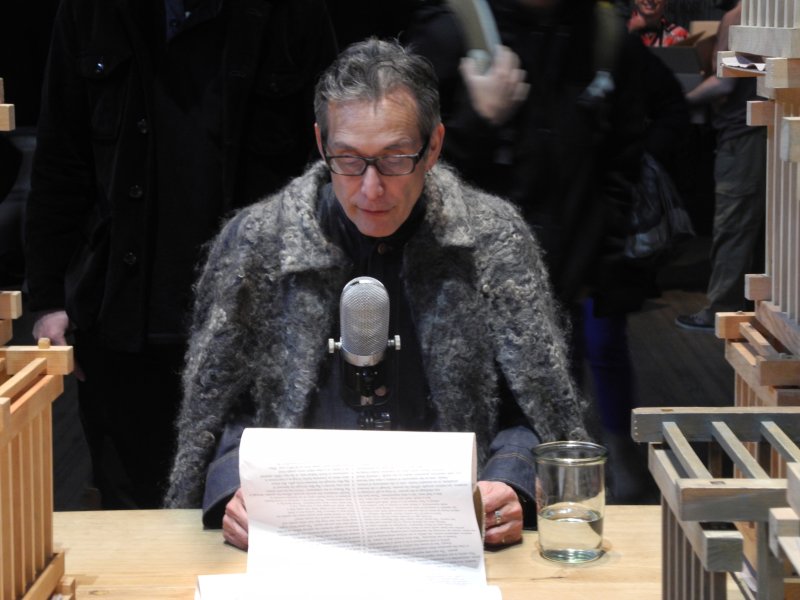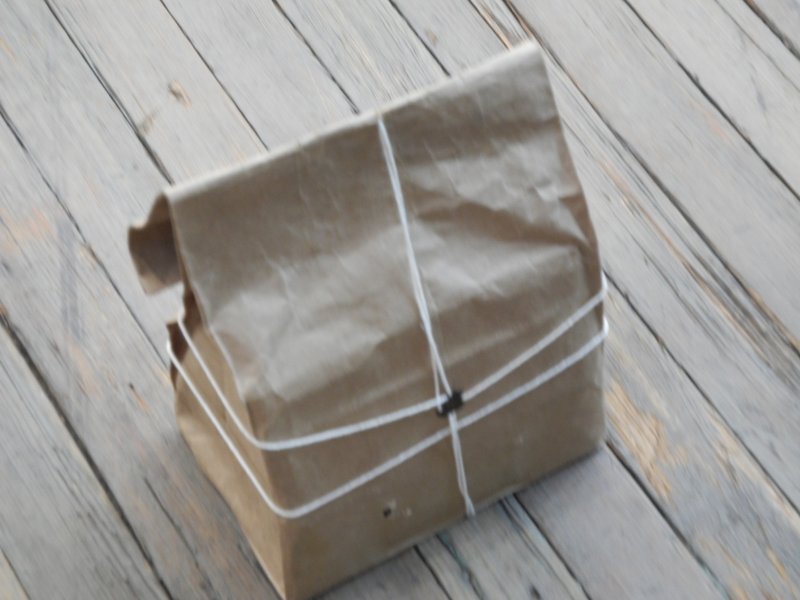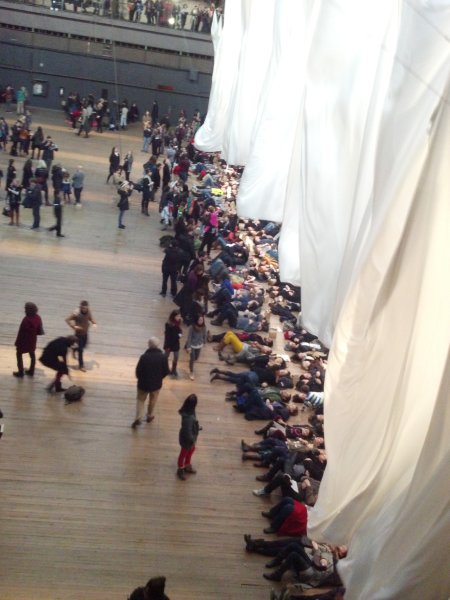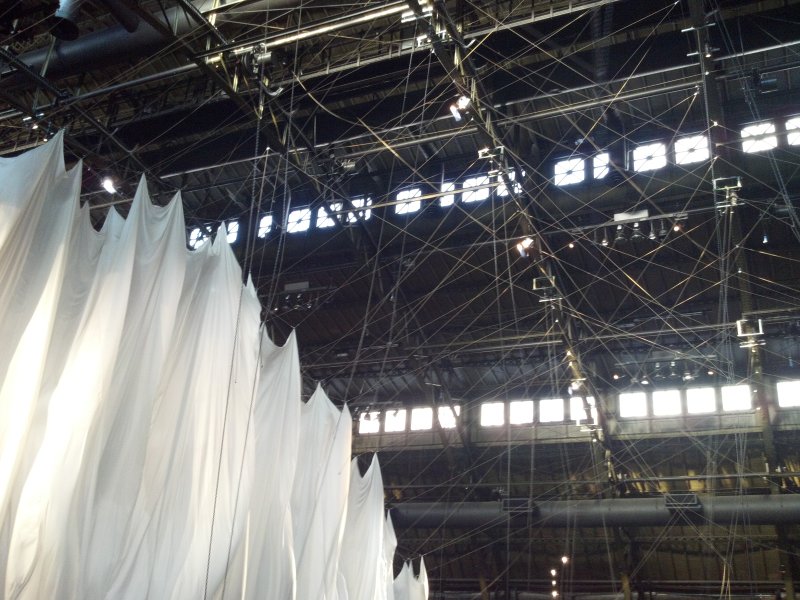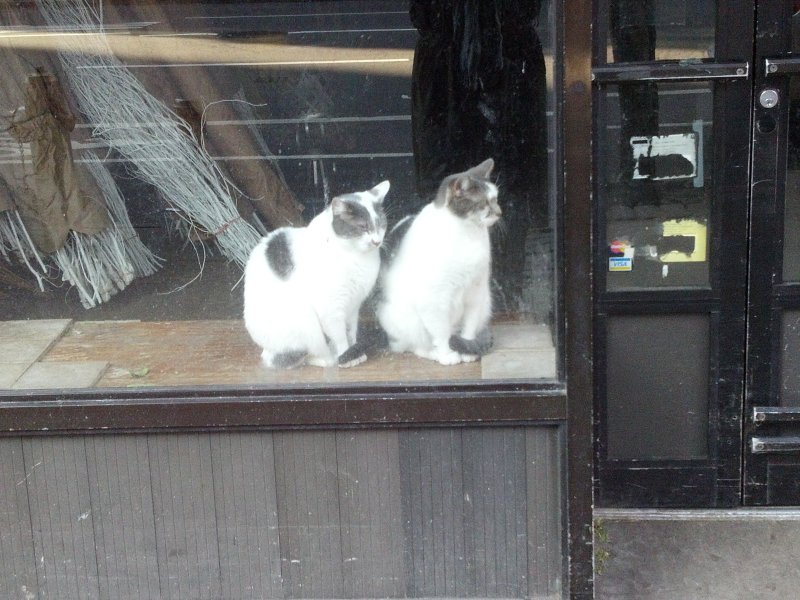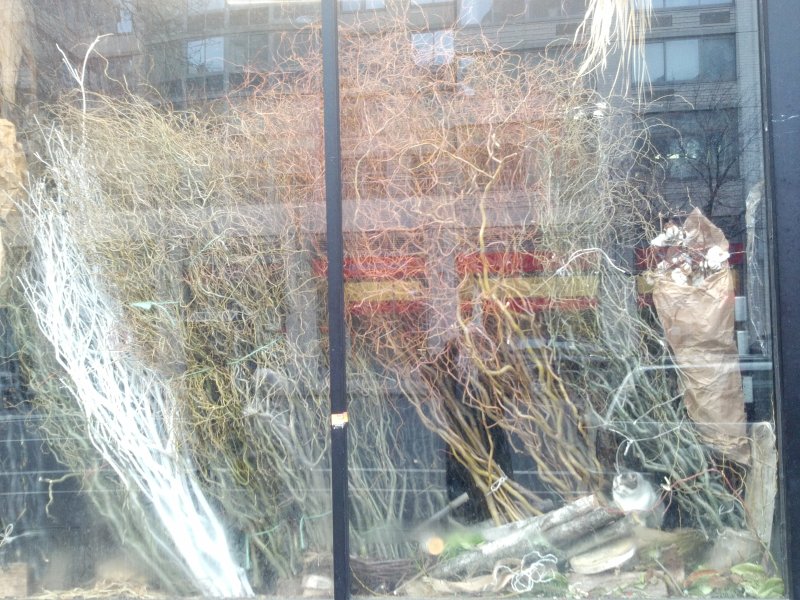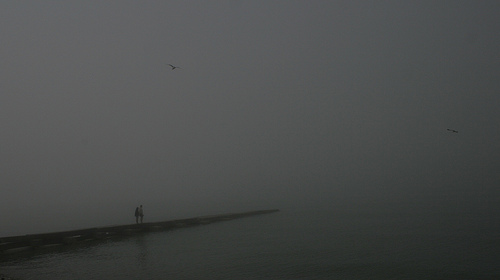
Out in the bay, the fog horns are sounding, their long, low, throaty wails echo lazily off the high rise buildings of Yankee Hill. Occasionally they are answered by a ship asea, like some love lorn animal seeking its mate. These horns bring back such fond autumn memories for me, of my childhood growing up on Hackett Avenue.
Every fall we would build forts from the leaves, my brother, sister and I, and shoot up the neighborhood from the safety of our burrows within them. We had few firearms. Our parents were pacifists, as it were, and housed Students For McCarthy one election, and supported our efforts on behalf of a certain Senator four years later. But this time of year out would come the rat-a-tat-tat mechanical plastic machine guns — M16 or AK-47, I could tell you not — and we’d dust off the old cap pistols from the cowboy and Indian sets.
Upon settling in the house on Hackett, in 1966, my father went exploring at Boerner Botanical Gardens. The rose gardens there being modeled after Queen Mary’s Rose Gardens at Regent’s Park, London. He loved those roses, and was determined to find some which would acquit themselves well in this climate. He selected some Florabunas, tho he didn’t know it yet. He wrote to the chief grounds keeper, describing the flowers he wanted, and their location within the grounds, and received back by return post the specifics and where to buy them.
The graft roots in hand, the next season he planted them along the front walk; a line of thorned sentries to guard against stray pets (and their clumsy owners). These florid red roses would all be gone come October nights, of course, but their skeleton were perfect structural support for the siege walls of our leaf forts. To this we would add cardboard boxes dragged from the curb, and branches felled by those city crews who waged war against the Dutch Elm Disease which was to decimate, many times over, the ranks of our formerly cathedral-esque streets.
From the safety of our forts, under a sanguine, weighty and magnificent hunter’s moon, we waged war against our foes, real and imagined. It may be the Smirle boy from down the street, or the Clarks, two doors to the south. Maybe the Litzaff kids would venture our way (always ill advised) but we would hold them at bay, our rat-a-tat rifles springing to life under our seasoned command, our incongruous tri-cornered hats perched on our heads.
As the years crept by, however, those accouterments were first joined then supplanted by the various bits of Vietnam war paraphernalia which found its way to our house, from the rummage sales of the veteran-students who lived amongst the families on our street. Along with this gear came a growing realization, too, that the very thing that our earnest student house guests — and even ourselves — were protesting about, war, was what we were playing at. Gradually, then, the games of war fell away from us. The great piles of leaves in the front yard went back to being prospective mulch in my mother’s compost heap, and our attentions turned to the unlikely election of one Senator McGovern to the Presidency, hoping to put to an end this reckless and ridiculous war which even in our little corner of Milwaukee one saw evidence of.
There had been the marches, of course, the uprisings at the university, and as the body counts on the nightly news began to crack into our childhood consciousness we were soon in full confrontation with the weightiest of issues, and our childhood was ending just as our political lives began. We carried on an English tradition of Guy Fawkes Day. We kids would fashion an effigy out of newspaper, leaves, old rags and paper bags. My father would choose the political scourge of the day from the cover of the Saturday Review, Newsweek, or the rotogravure and plaster it onto the paper-bag head of our Frankenstein Guy.
We would load the Guy into the Radio Flyer wagon and parade him around the neighborhood on November 5th (which conveniently fell near to election day) and sing our little song, “Please do remember on the fifth of November that poor old Guy Fawkes was reduced to an ember!” then our plea, “Penny for the Guy, penny for the Guy!” For Unicef, of course — Even in such dark celebration we maintained our liberal political correctness. When we returned home we would place the Guy on the fire grate and commit him to the pyre.
But before that, all back through our young histories in Milwaukee, living as we did by the water, were the fog horns, those stoic sentries of the water, those siren guardian whose unflinching, signal wails would guide the ships to safety and away from peril. As a youngster my favorite nights were those with the still cloak of fog heavy in the air, that Hunter’s Moon a mere smudge in the sky, and my mother and I reading bedtime stories to each other — H.G. Wells most often, but C.S. Lewis or others, too — as the fog horns wailed in the back ground.
After the last chapter of the night, my mother would pack up the book, tousle my hair, and tuck me in with a wee peck on the cheek. “Go to sleep now,” she’d say, “and no staying up with that flashlight!” Such admonition was hardly necessary, though, when the fog horns were sounding. I would burrow deep into my covers, pulling them as high up around me as I could, and imagine myself at sea, with those taciturn fog horns wailing, the waves crashing, the rocks threatening, and my own future uncertain with peril.
Much of this memory comes crashing home this year — the foggy fall, the political currents, and the timely (it would seem) death of that brave Senator from my past. George McGovern probably never had any chance, back then in 1972, but to my young eyes and to those of my siblings, he was a hero. My politics were forever forged in the furnace of Vietnam, the 60’s, the races riots and body counts and fair housing marches and assassinations. But it was those childhood nights of echoing fog horns which forged my soul, in the dark, under the covers, the words of H.G. Wells still resonating inside, feeling safe under my parent’s roof and wrapped tightly in their love.




